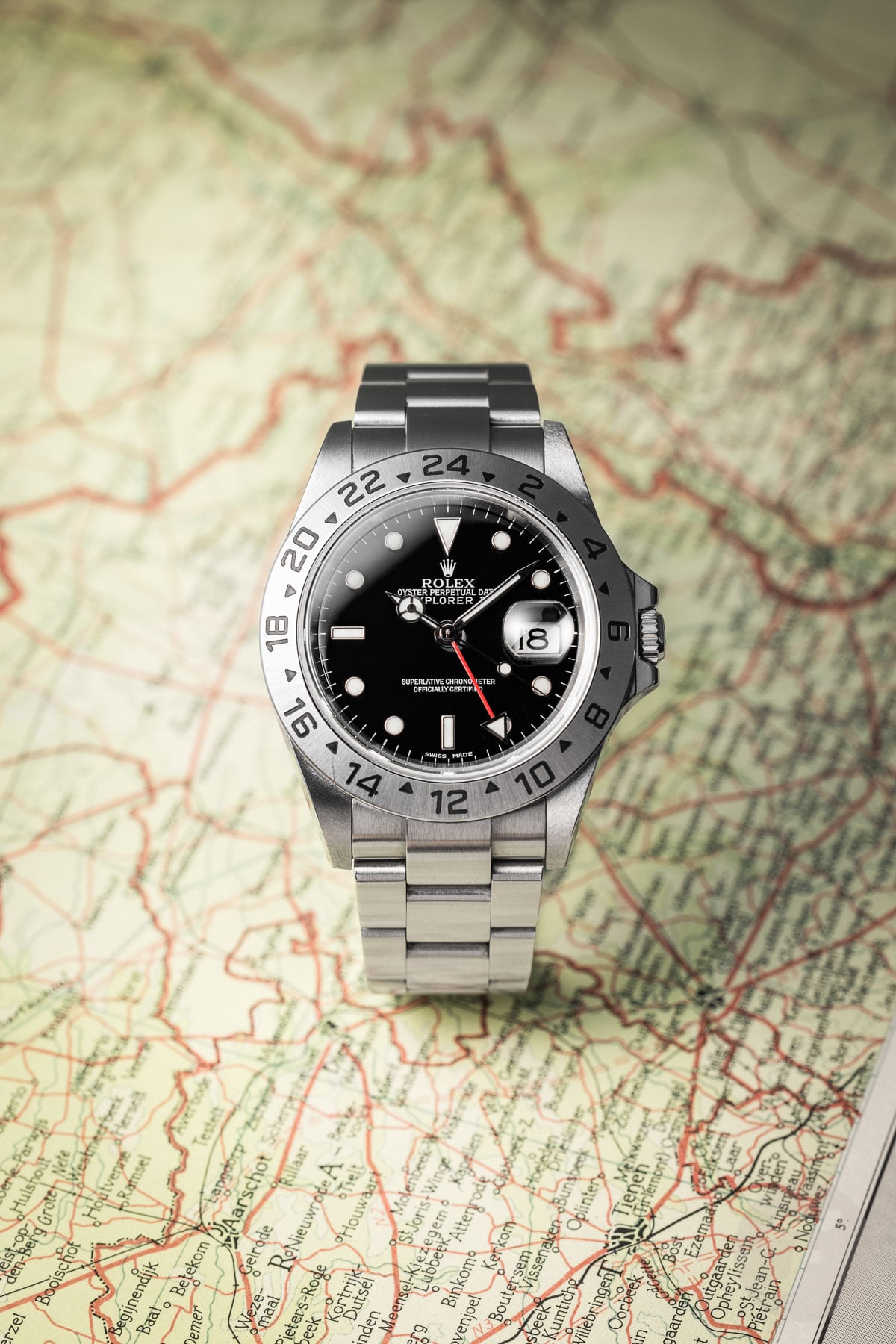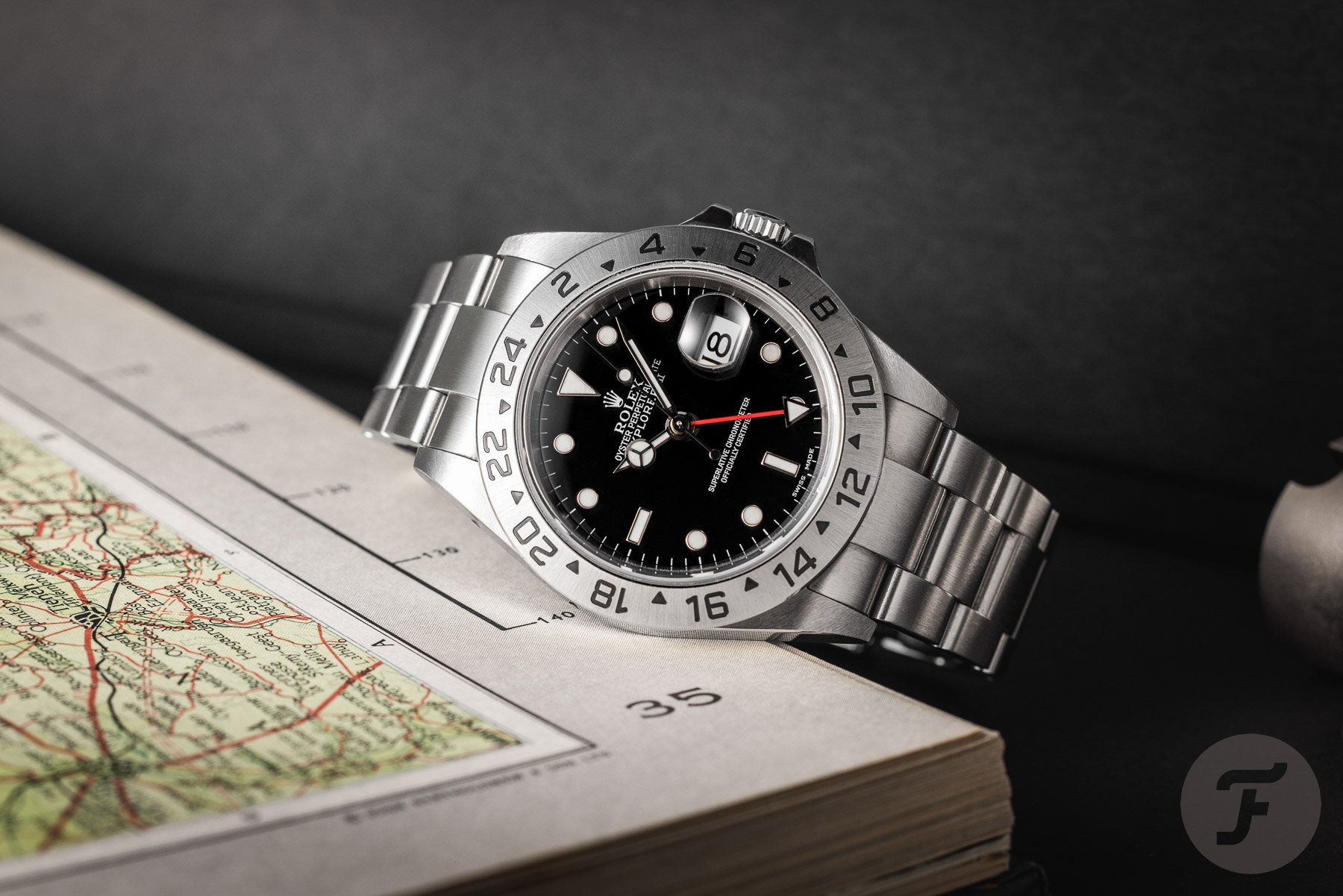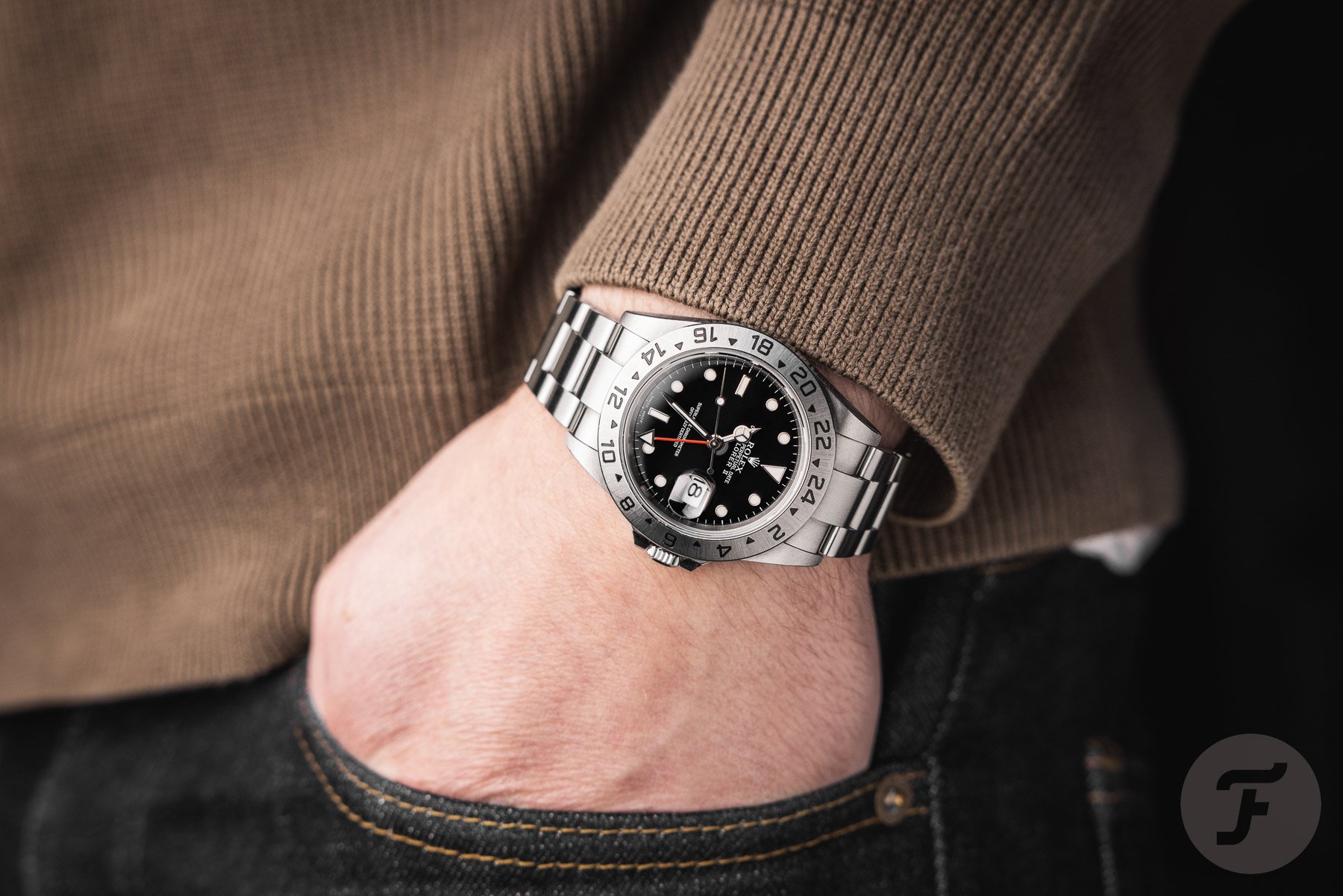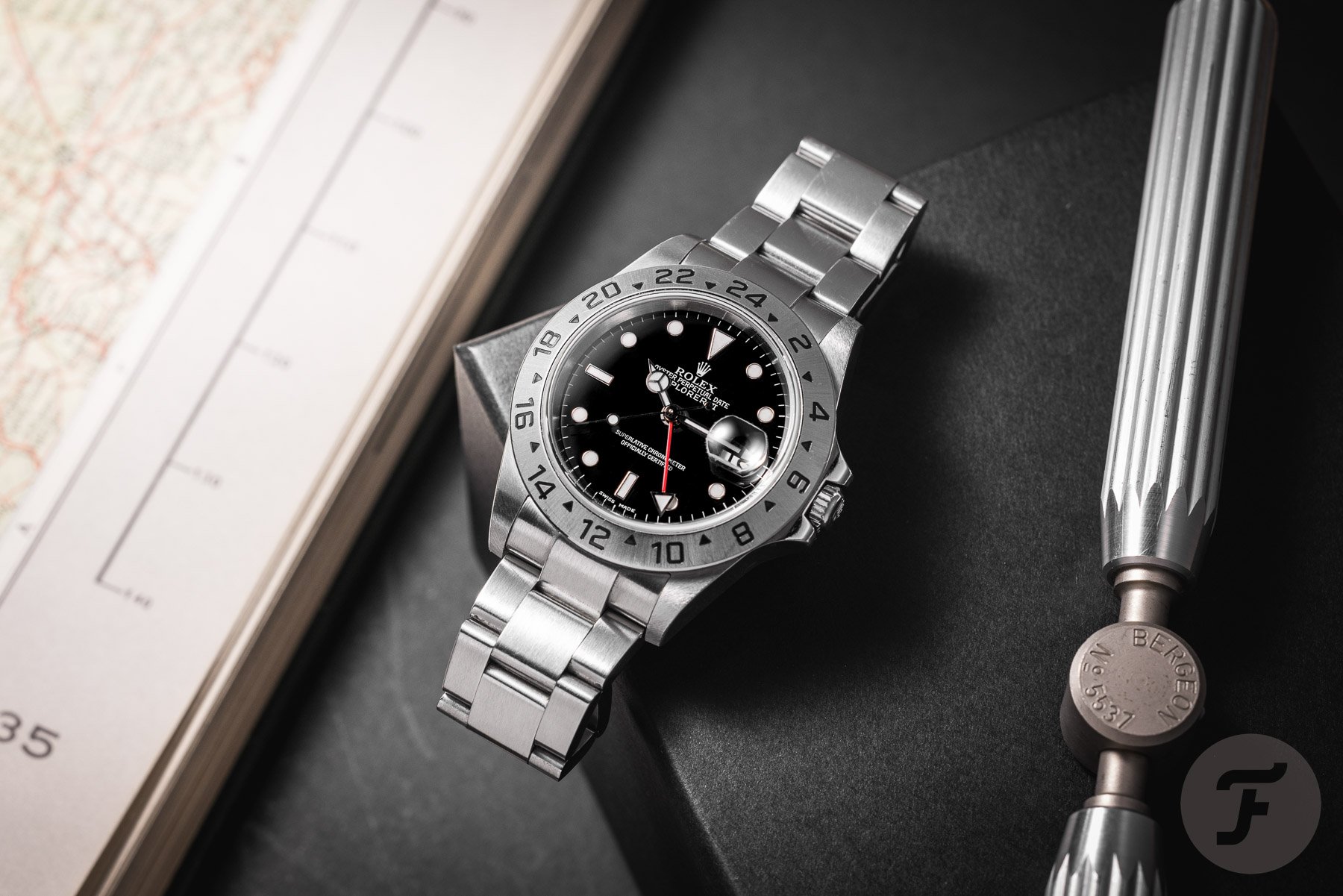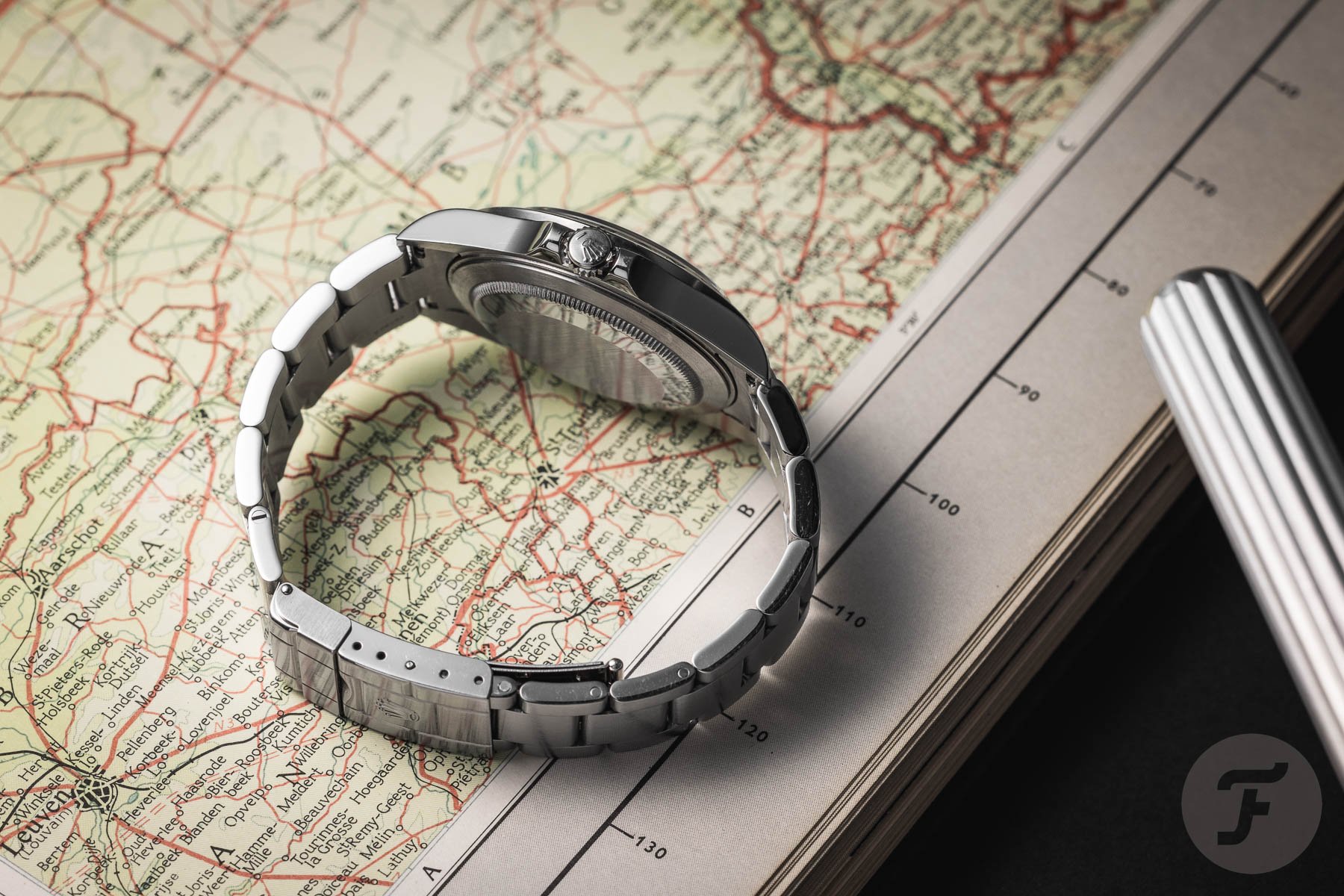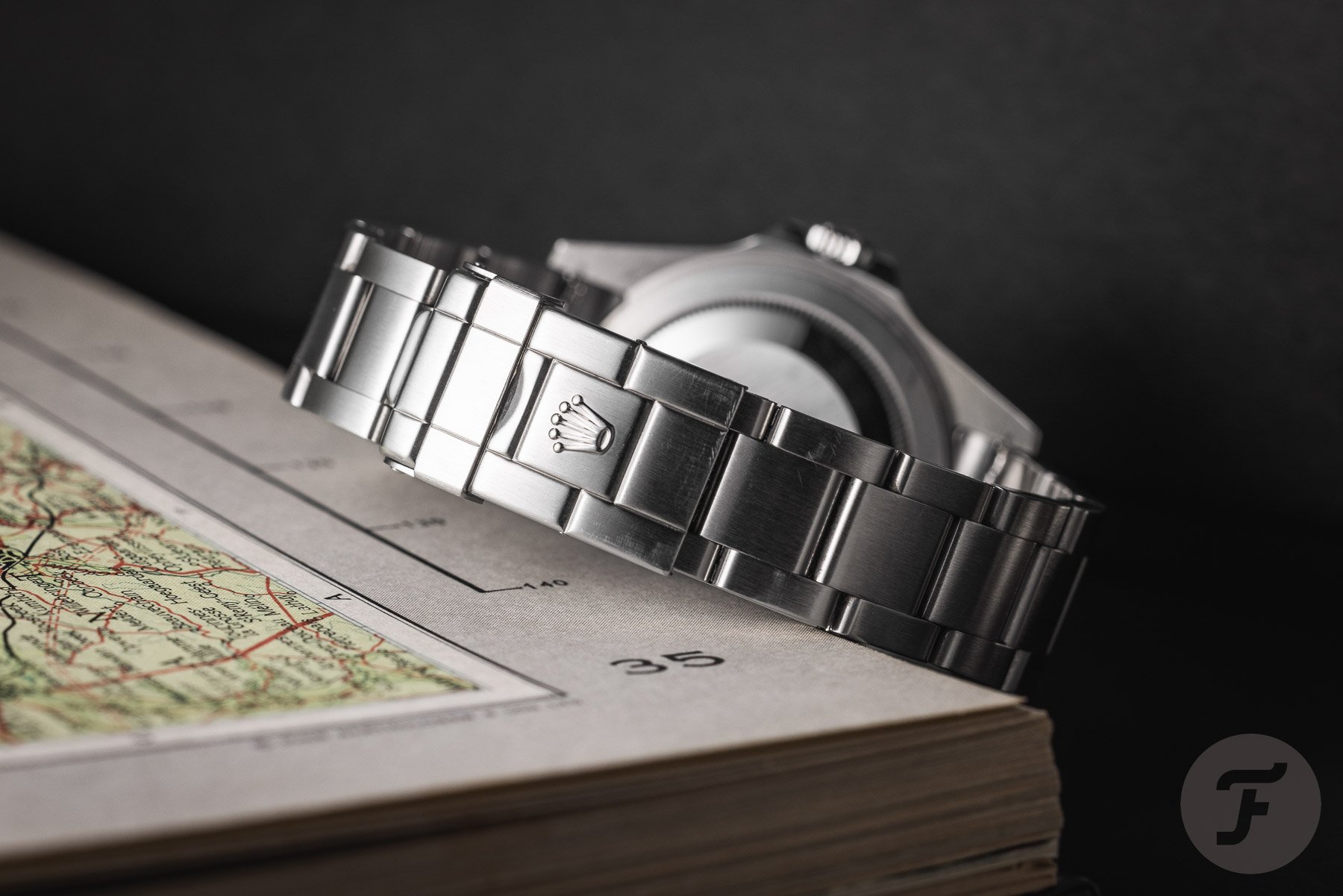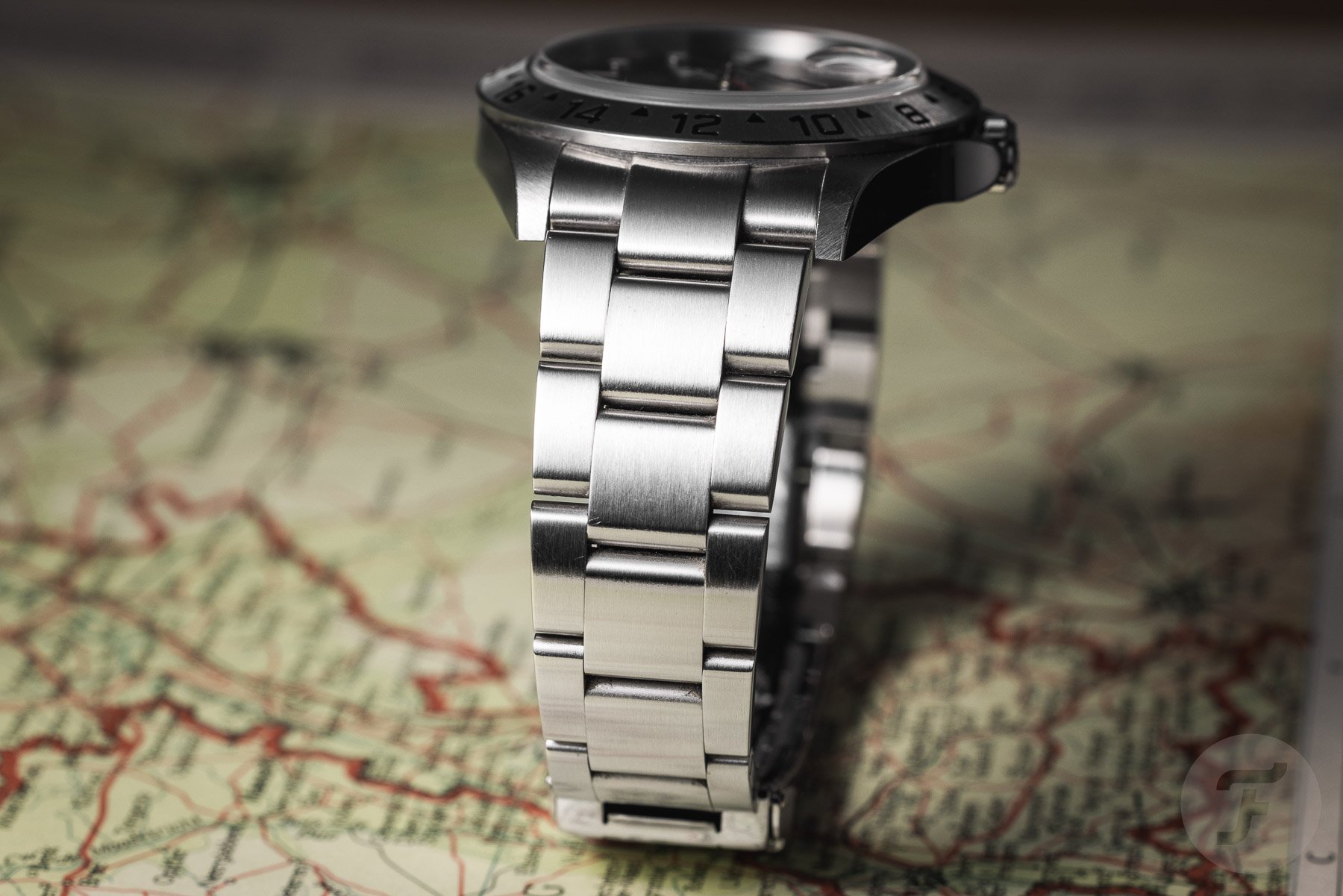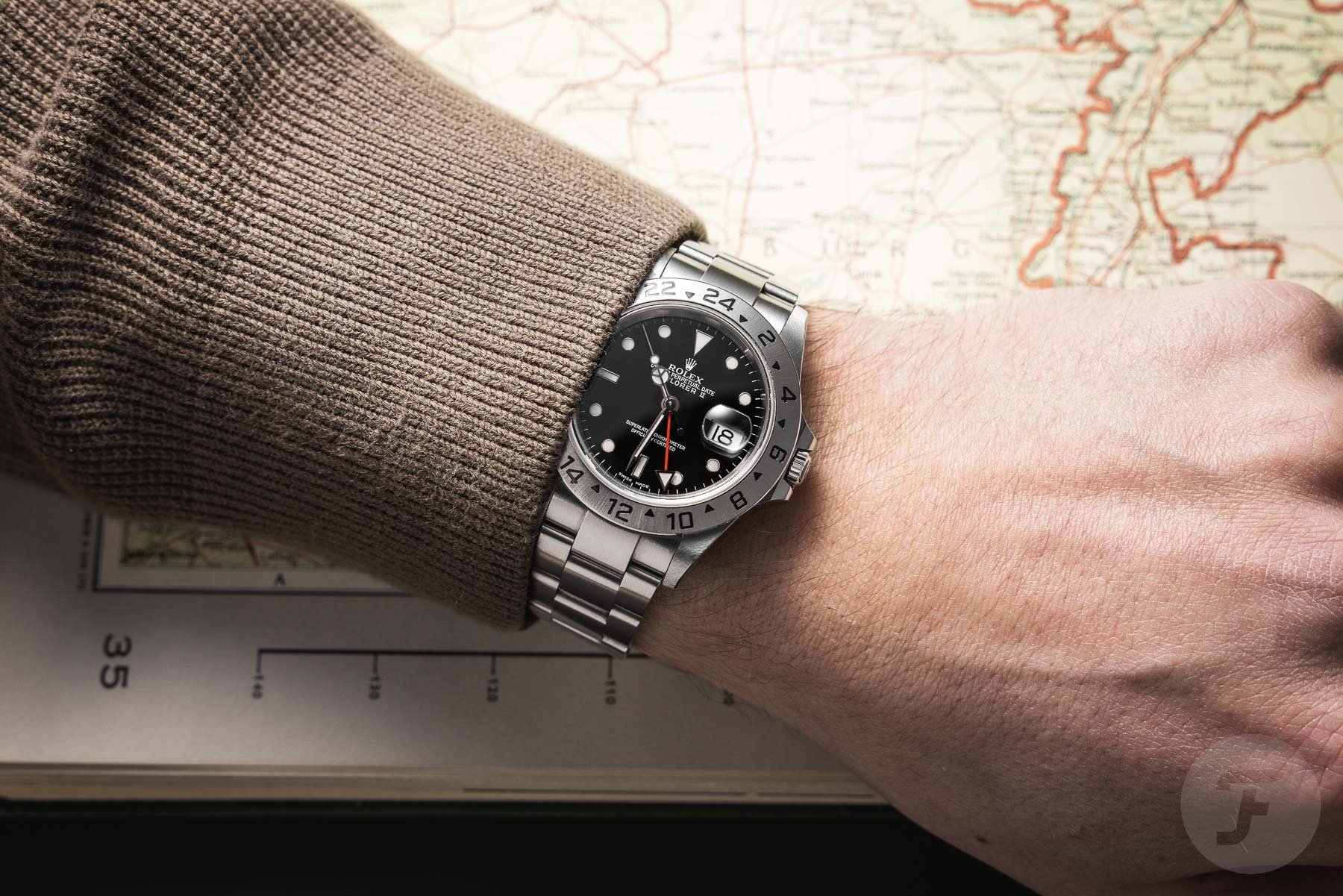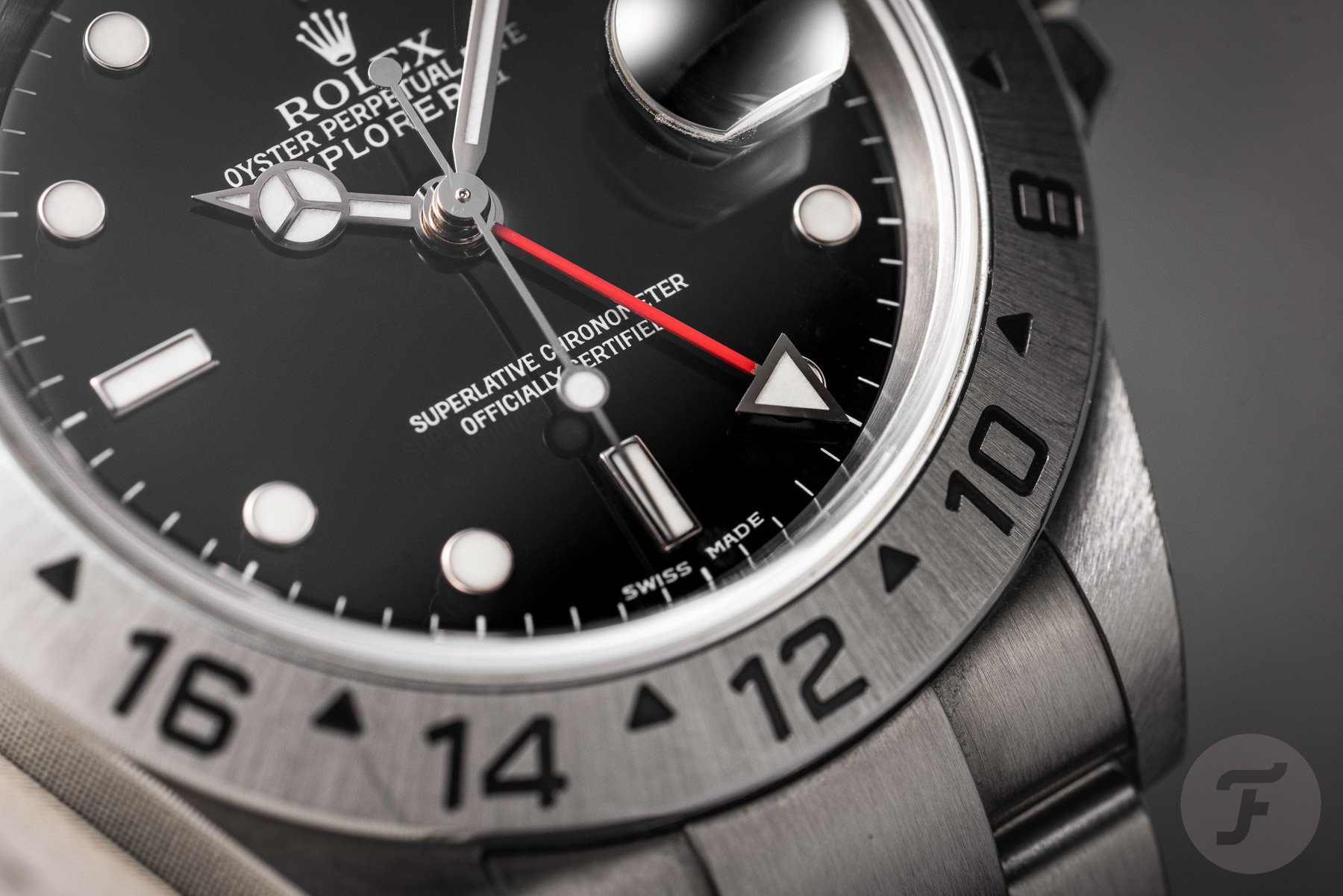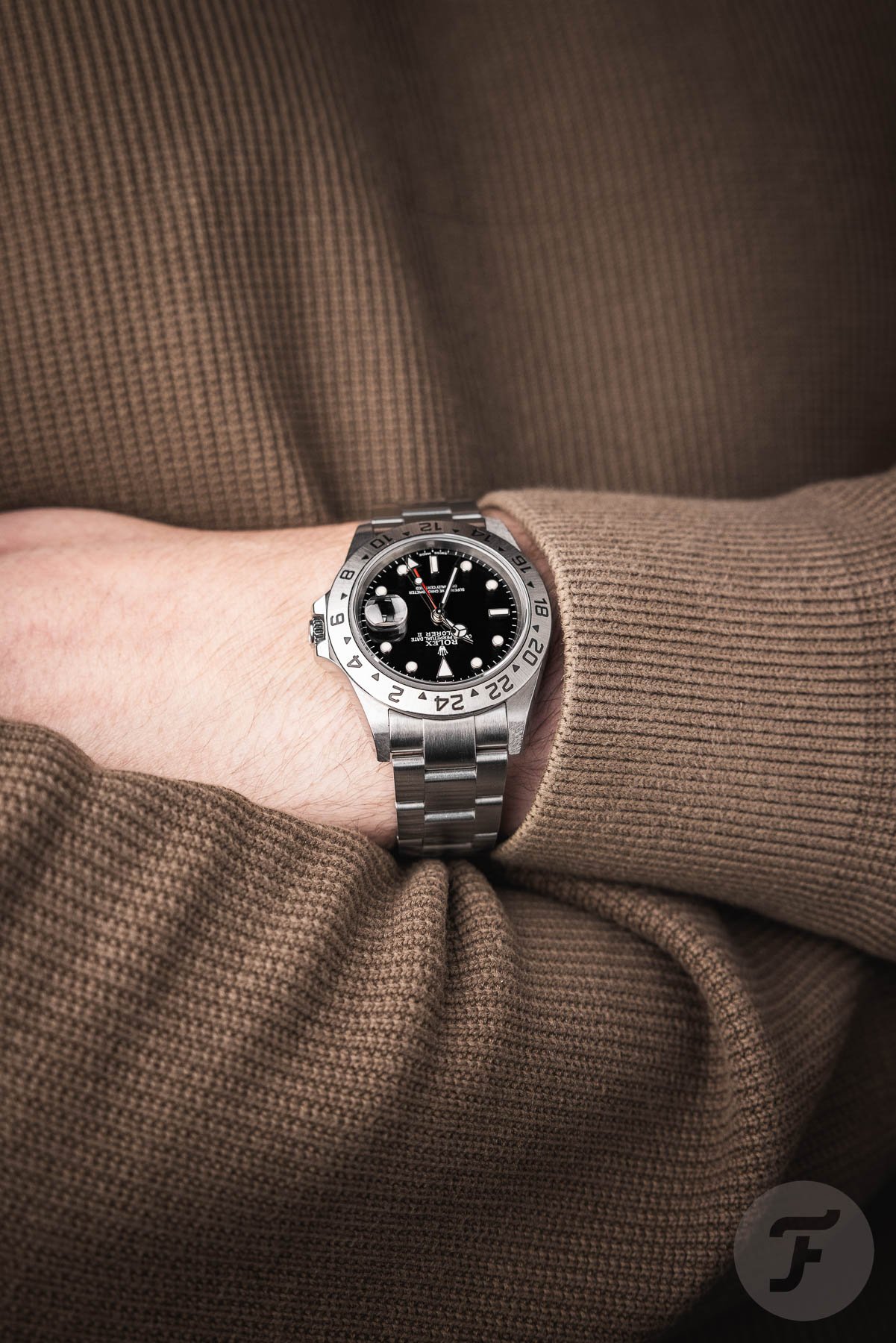Exploring Evergreens: The Black-Dial Rolex Explorer II 16570
In our series Exploring Evergreens, we have a look at watches that have been around for some time. These are watches that have stood the test of time to become archetypes, sometimes even icons. Today, I am covering the Rolex Explorer ref. 16570 in the black-dial execution. This is the most worn watch in my collection, so I think I can write a word or two on how it aged over the decades.
The 16570 generation lasted from 1989 until 2011, making this a true neo-vintage watch today. It is also one of the beloved five-digit Rolex references, combining more subdued styling with relatively modern, solid construction and sapphire crystals. Let’s explore (see what I did there?) how it stacks up well over a decade after its discontinuation.
Different versions of the Explorer II 16570
As you imagine from a Rolex model that was been around for two decades, there were a few iterations. Besides this, there was the white-dial “Polar” alongside the black-dial version you see here. The Polar is often touted as “the one to get.” This is due to it being more distinct and atypical of a Rolex sports watch. This has been reflected in prices on the used market, where white dials tend to be a bit more expensive.
For me, though, the Polar is a bit too white, flat, and clinical. In photos, I tend to lean towards the Polar. However, I have had the Polar and the black dial side by side many times, and I always preferred the black in real life. To me, it lends the watch a little more character and depth, contrasting the steel bezel. This is, obviously, just a matter of taste. Clearly, the market disagrees with me.
In terms of in-reference updates, I have written a comprehensive buyer’s guide describing all the nuances before. In broad strokes, you see tritium, drilled lug holes, and folded end links on early versions. They were replaced with (Super-)LumiNova, non-drilled cases, and solid end links in different steps. In 2007, the movement also got an update with a Parachrom hairspring. In short, early ones have a bit more of a vintage vibe, especially if the lume has yellowed. The lighter folded end links and drilled lug holes contribute to this vintage feel. More recent ones creep much closer to modern-day Rolex in that regard. Mine, which you see in the pictures, is from 2004.
Which parts of the 16570 have aged well?
What initially drew me to the Explorer II ref. 16570 was its proportions. It has a 40mm diameter, 47mm lug-to-lug, and 12.2mm thickness. That is perfection to me for a sports watch like this. You see it on my 17cm wrist here. The next generation (ref. 216570) grew to 42mm, and everything got much bolder, including bigger indices, heavier hands, bolder numerals on the bezel, and orange accents. To me, it lost some of the sophistication of the earlier ref. 16570. That sophistication, I am happy to report, still holds up today.
Overall, this generation of the Explorer II feels quite contemporary to me. The dials look refined and modern with their applied white gold indices (which are painted black on the Polar). The flat sapphire crystal draws a clear line between earlier “true vintage” watches and this neo-vintage generation.
As a design, the 16570 could be introduced today, and I doubt that anyone would call it “dated.” That said, it is different in spirit from what Rolex is doing today. I often feel that modern Rolex watches are designed to be quite noticeable from a distance. The 16570 isn’t like that at all. I have never been asked about mine by a non-watch enthusiast while wearing it. It just doesn’t look all that fancy from a distance. It is just a super-capable watch that doesn’t make a fuss. I think this is why many people appreciate the five-digit generation in general. And in this sense, this Explorer II fits that generation to a tee.
How about the caliber 3185/3186 inside?
From 1989 until 2007, the Explorer II housed the Rolex caliber 3185, which was new for 1989. This is a flyer GMT caliber with KIF Elastor shock protection and Microstella regulation. It uses a Nivarox hairspring, and the balance sits under a full balance bridge. The caliber measures 28.5mm across by a generous 6.45mm thick, beats at a 28,800vph frequency, and has a power reserve of around 48 hours.
This movement is extremely reliable. Talking to my preferred watchmaker, he tells me that everything is just a little thicker and more solid than in most calibers. It is a breeze to take apart, service, and reassemble. The 3185 does have one flaw, though. When setting the time, the independently adjustable 12-hour hand wobbles somewhat. This has no consequences other than looking a tad sloppy by Rolex standards. In 2007, the Explorer II received a movement update with caliber 3186. It fixed the wobbling hand and added a modern Parachrom hairspring for additional antimagnetism and temperature resistance.
The current Explorer II (ref. 226570) comes with the latest caliber 3285. This features a 70-hour power reserve and Paraflex shock absorption. There are some structural changes too, such as a ball-bearing-mounted rotor rather than an axle-mounted one. There are pros and cons to each, depending on which watchmaker you ask. What is clear is that calibers 3185 and 3186 are still very capable by today’s standards. They may not be the latest and greatest, but they will not leave you longing for much in daily use.
What hasn’t aged well on the 16570?
The one place where the 16570 shows its age is the bracelet. Or, more kindly worded, it is where you can see the greatest development since. My 2004 example comes with solid end links, which go a long way in making it feel substantial and contemporary. However, the center links are still hollow. This Oyster bracelet is lighter and feels less “precise” than the current Rolex offering, which boasts very tight tolerances while also feeling very smooth and supple.
However, the clasp on the older bracelet is where things truly get “neo-vintage.” It is of the stamped variety and has faux Oyster links stamped on it. You get the old-school array of micro-adjustment holes, which work just fine but are no match for the modern Glidelock clasp. Opinions are divided on the looks of these holes. I happen to think they’re hideous, but I know some people get warm, fuzzy feelings inside when they see them.
I should mention, though, that the bracelet and clasp perform perfectly. The combination is comfortable, easy to size, and solid enough to survive decades of heavy use. It is only if you know how amazing modern Rolex bracelets have become that you may lust for something more. If you prefer a lightweight and thin clasp over fancy features, this is still your best bet today.
The underappreciated one among Rolex sports watches?
The Explorer II has always been a bit of an odd duck in the Rolex catalog, not least of all because of its intended niche. I mean, who sets out to make a watch specifically for spelunking? Aesthetically, it is perhaps also a bit more of an acquired taste than the Submariner and GMT-Master. This all means it has been trailing market-value-wise in comparison to those hot-shot siblings.
Since the spring 2022 peak, the Explorer II has come back down in price. It is significantly more affordable than the Subs and GMT-Master (II) models of the same age. The 16570, in particular, is the most affordable of the Explorer IIs. I would argue, though, that it is the best. Unless you like the more in-your-face proportions and styling of the later ones, that is. You get that tasteful subtlety of a five-digit sports Rolex with none of the vintage premiums or compromise in build.
The thing is, compared to its predecessors (the 1655 “Freccione” and 16550), the 16570 was produced for much longer and in much greater numbers. There are simply more of them, making them a little less collectible. And that keeps them on the more “affordable” end of the spectrum. They also seem to fly under the radar of the broader watch-buying public, keeping them in enthusiast’s circles. All in all, they make for a pretty compelling buy in comparison to the alternatives from the same brand.
Closing thoughts on the Rolex Explorer II 16570
My black 16570 is my most worn watch for several reasons. It suits my style to a tee, it is highly versatile, and it is solidly built. It represents a sweet spot in the Rolex universe to me, as described above. This is everything I admire about Rolex and none of the things I dislike about the brand. Did you notice how I didn’t have to write about wait lists, puzzle dials, AD shenanigans, muggers, and status symbolism in this article? That’s because the 16570 lives on the other end of the Rollieverse. You should come and check it out; life is better here!
Jokes aside, I feel the Explorer II ref. 16570 is an absolute evergreen. It is a watch that took some time to grow on me, but it has become my favorite within my small collection. It isn’t a publicly prominent icon like a Nautilus or Daytona. This one operates behind the scenes and won’t have your friends gather around you at a birthday party. But it will serve you reliably and in style, and that is what it is all about for me.
What do you think of the black Rolex Explorer II ref. 16570? Let us know in the comments below!

